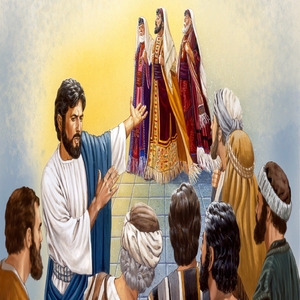
.jpg) Jayaseelan Savariarpitchai SDB
Jayaseelan Savariarpitchai SDB

Recently, a friend shared a story in response to an article I had written in Tamil titled, “The Velocity of Truth is Patience,” recounting one of his life experiences in the corporate world. He was part of a team of five, entrusted with supervising responsibilities in a company. Within a short span of time, the other four members experienced rapid financial growth, while my friend was criticized for his slower pace. He was unjustly labeled as ignorant, innocent, and naïve about the ways of the world. This left my friend in a state of utter confusion, pushing him into a crisis. Despite his diligence, accuracy in work, a similar salary, and prudent savings, he couldn't match the financial progress of his colleagues. However, after careful reflection and wise consultation, he chose to continue patiently with his steady pace, finding contentment in it. Years later, the company faced insurmountable debt. During the rehabilitation process, the four who had experienced rapid financial growth were charged with fraud and forgery, leaving behind my steadfast slow pace friend alone in the team, proving the credibility of patience.
Well, fraud and forgery, once exceptions, have unfortunately become increasingly prevalent, seeping into the core of our lives. They have eroded our fundamental moral convictions, posing a serious threat to our beliefs. In fact, they seem to easily, gradually, strongly, and convincingly extend their wings in the nitty-gritty of our daily lives to the extent that they make our basic virtuous behaviour a laughing stock. The danger lies in our potential complacency towards this new reality. Fraud and forgery, once anomalies, now appear to permeate our lives, challenging our fundamental beliefs and their ceaseless extension is a matter of concern.
Extension, per se, is a positive concept that spreads optimistic vibes. In the commercial world, extension signifies progress, productivity, growth, success, and the achievement of milestones. Whether it is extending a building, office, workspace, or production unit, these developments symbolize progress. In personal interactions, extending a helping hand demonstrates compassion and empathy, enriching our connections with others. In religious contexts, institutions extend their presence to fulfill missions and moral obligations, embodying exceptional acts of kindness.
Exceptions, too, hold positive connotations, representing extraordinary events that capture attention and admiration. Exceptional talents, characters, and minds inspire and persuade the world. In fact, life is dotted with exceptions that enhance our experiences. A prime example is the curve in a highway. Although straight roads are cost-effective, curved roads ensure safety and comfort. Apart from helping the alignment of the vehicle, these bends force drivers to be alert, regulate speed, and change direction gradually, making journeys pleasant and more manageable.
However, exceptions can have negative connotations, representing limitations and human fallibility. A petty mistake, a little fall, having long hands, trying a sound voice, saying a small lie, engaging in occasional gossips, indulging in sporadic laments are little exceptions in life's journey. As humans, we are prone to such limitations now and then. The danger arises when these limitations are justified as human traits, leading to their normalization, distorting the balance between what is exceptional and what is ordinary.
In fact, today, exceptions seem to be increasingly pervasive, infiltrating our ordinary lives. They are rapidly extending their wings, doubling their presence, accumulating their turnover, often accompanied by success and prosperity. When exceptions overwhelm normality, reality is inverted: the mainstream becomes optional and the optional becomes an indispensable mainstream. For instance, if curves extend and they fill the road entirely, then driving becomes exhausting, the journey arduous, and this extension of exceptions certainly causes serious repercussions in life.
Regrettably, religious life is not immune to these experiences of extension. As secularization encroaches upon religious practices such as observances of piety, solidarity with the poor, being generous, having a sacrificing mind, practicing a forgiving heart, standing for truth, and being protagonists of evangelical virtues, these foundational values are gradually becoming exceptions.
More alarmingly, even belief in God occasionally becomes an exception. When this happens, lies, gossip, flattery, luxury, laziness, comfort-seeking, and exclusiveness become the new normal. Once exceptions extend to be the new normal, the so called 'normals' would become exceptions and the fundamentals face extinction. Yes! when fraud governs business, morality languishes; when curves dominate roads, journeys falter; when limitations dictate lives, perfection becomes utopian; when exception extends, life itself suffers an exception.